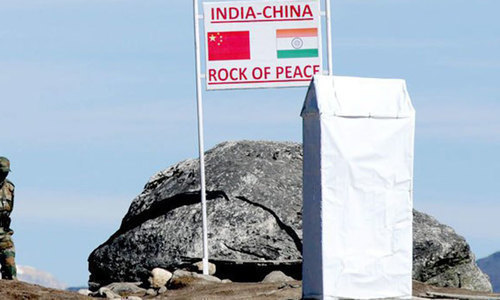India will handle China's growing assertiveness and has stepped up patrols on their disputed border to head off more standoffs, the country's top army officer declared on Friday.
The nuclear-armed neighbours have in the past gone to war over their border and last year were involved in a showdown over a Himalayan plateau claimed by China and Bhutan, which is an ally of India.
“We understand China is a powerful country but we are not a weak nation,” Indian army chief General Bipin Rawat told a press conference when asked about the border dispute.
“We have increased our troop levels... we have increased our patrolling intensity. We are capable of handling China's assertiveness.
“We will not allow our territory to be invaded upon. Whenever intrusions take place we will defend because that's there in our charter.”
Hundreds of Chinese and Indian troops faced off last year on the Doklam plateau, a small strip close to the intersection between China, India and Bhutan.
Rawat said Indian soldiers crossed into foreign territory during the standoff but only because Chinese forces had “big equipment and they meant business”.
“We knew they will try and claim the whole of Doklam. We felt a change in the status quo..(But) all effort was made by us to ensure it does not lead to a conflict.
“Even if it would have escalated we were prepared (as) the terrain usually favours us.”
The border dispute began in mid-June after Chinese troops started building a road on the Himalayan plateau.
India has an army base nearby and moved soldiers into the flashpoint zone to halt the work, prompting Beijing to accuse it of trespassing on Chinese soil.
The two nations finally pulled back their troops in mid-August, averting a full-blown crisis.
India and China fought a 1962 war over Arunachal Pradesh state and have a history of mistrust as they jostle for regional supremacy.
China has fostered closer ties with India's arch-rival Pakistan in recent years. It has also invested in other countries in the region in a bid to win friends.
India is revamping its military and bolstering its partnership with the United States and Japan.
Both nations say they are committed to solving longstanding border disagreements through dialogue, but progress has been glacial.













































